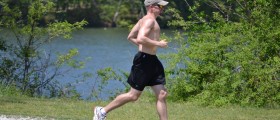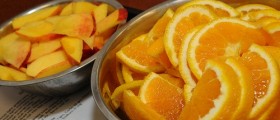
What is Candida?
Candida albicans is a common yeast species that's frequently found on the skin and inside the bodies of humans. This normally isn't a problem at all. The yeast species only starts to cause issues when it overgrows, leading to candidiasis — a very frequently seen kind of yeast infection. Candidiasis can cause nasty infections, primarily on the throat and mouth (oral candidiasis or thrush) or vaginal yeast infections. In extreme cases, Candida can even reach the bloodstream and wreak havoc.
The most well-known trigger for yeast infections is taking antibiotics, which not only kills off harmful bacteria causing an infection, but also your healthy and friendly bacteria. When their numbers dwindle, Candida has a chance to become more invasive. Many women have yeast infections for no particular reason, however.
How is candidiasis usually treated?
Yeast infections like candidiasis are treated with antifungal drugs/medicines such as Nystatin, Diflucan, Clotrimazole Monistat, ThreeLac and the like. People who suffer from frequent yeast infections may grow tired of taking these medications, as they do have the potential to cause unpleasant side effects like diarrhea, vomiting, and stomach pain.
Is there a natural solution to Candida infections? What about fasting?
For all the people suffering from highly unpleasant and troubling Candida infections, and for all those who are a bit fed up with those conventional solutions to their problem, it can be tempting to look to alleviate their trouble by starting with a fasting “routine”.
There's no shortage of recommendations for becoming Candida-free quite naturally, and approaches like body cleansing and fasting, advocates will be eager to tell you, have been known for centuries to provide relief and aid the entire recuperation period.
In addition, natural-health proponents will say, fasting or going on a special Candida diet free of yeasts, sugars, alcohol, and the like, represents a highly favorable and effective way for those people who experience fairly frequent relapses of yeast infections.
Most of all, the claims will go, the power of fasting lies in the fact that, when followed to the letter and adhered to diligently, a person can bring about a complete disappearance of Candida, i.e. make it die off, increasing the overall strength, endurance and health of the immune system along the way.
Is there any truth to the claim that fasting will clear up Candida infections?
In short, no. Fasting — refraining from eating for a time — may be performed on many grounds, to improve your overall well-being, to lose weight, or for religious reasons. Fasting isn't harmful. Intermittent fasting can have health benefits, in fact.One thing that should be kept in mind, however, is that this health-promoting approach is not suited for each and every person. You should not fast if you have blood sugar issues and complications, are taking medications, are pregnant, are underweight, or are not yet an adult. Such person's should avoid longer periods away from the kitchen-table at all costs.
Furthermore, even proponents of fasting to eliminate Candida would not advise juice fasting, due to juices having a high sugar content. Even despite the fact that each pure juice is actually comprised of natural and not refined sugar, the fact still remains that even such sugar can prove to be quite a handy food source for bacteria, and this way induce their growth further.
So, fasting can be healthy — but there is no evidence that fasting or following a Candida diet will specifically rid you of a yeast infection. You may well, however, see overall health benefits if you cut out refined sugars, white flour, and fast food in general. If you are looking for natural ways to counter a yeast infection, you are more likely to find luck with probiotic products such as kefir.
- www.cdc.gov/fungal/pdf/crypto-screen-strategy-508c.pdf
- www.cdc.gov/vaccines/hcp/vis/vis-statements/hpv.html
- Photo courtesy of CDC/Dr. William Kaplan by Wikimedia Commons: commons.wikimedia.org/wiki/File:Candida_albicans_PHIL_3192_lores.jpg

















Your thoughts on this
Loading...